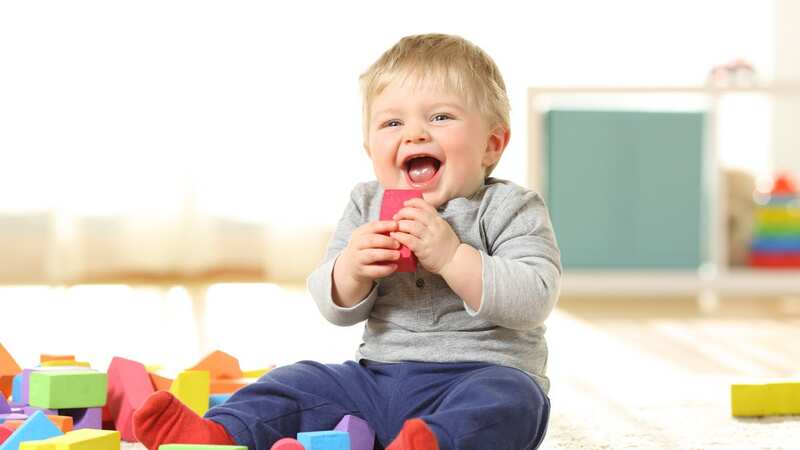Experts say babies' first word after 'mama' is often the same - it's not 'dada'

One of the most common first words for babies to say when they're learning to talk is "mama", and while many parents hope that their child will also learn to say "dada" just as quickly, language experts have claimed that's unlikely to be the case.
Instead, researchers believe that babies often have the exact same first words regardless of what language they speak, and have claimed that those words include "this" and "that".
According to a research team from Cornell University in the US, the earliness with which children begin to use "this" and "that" - which appear in many kids' vocabulary between 12 and 18 months - shows that they are eager to share attention, and that focusing on the words is also a result of children finding it tough to understand others' perspectives.
 Many babies will say 'this' and 'that' before 'dada' (stock photo) (Getty Images)
Many babies will say 'this' and 'that' before 'dada' (stock photo) (Getty Images)"This" and "that" are both demonstrative words, and in English, they are the only two primary demonstratives we have, while other languages have many more, with some even having up to a dozen.
But the researchers' findings were the same in languages with more demonstratives than English, meaning words such as "this" and "that" are among many children's first words, even if it means speaking a dozen words.
 Baby boy has spent his life in hospital as doctors are 'scared' to discharge him
Baby boy has spent his life in hospital as doctors are 'scared' to discharge him
In the study, researchers recorded children in Peru who speak Ticuna, and found that they learned "egocentric" demonstratives (meaning words that revolve around themselves) such as "this near me" and "here near me" around two years earlier than demonstratives relating to other people, like "that near you" or "there near you".
They also found that egocentric words made up around 15 per cent of a young child's vocabulary, as they struggle to understand perspective as it relates to other people.
Dr Skilton said: "Children learn demonstratives that call others’ attention to objects – such as ‘this/that’ and ‘here/there’ – at extremely young ages, when they know very few other words.
"'This’ and ‘here’ show up just as early as stereotypical first words like ‘mama.’
"While adults think of these words as simple, their meanings are fairly challenging for children to understand at young ages and having trouble with them is a typical part of child development.”
Ticuna is spoken by around 69,000 Indigenous people living along the Amazon or Solimões River in Peru, Colombia and Brazil.
It features six demonstratives, and four were studied because they are commonly used.
During her research Dr Skilton studied a community of around 5,000 people for over a year in Cushillococha, Peru.
The community relies on subsistence farming and Dr Skilton recorded children aged one to four playing with caregivers in their homes, analysing the early stages of Ticuna spoken in almost 15 hours of video samples.
Dispute the children’s small vocabularies, 12 of the 14 one-year-olds said "this” and "that” or "here” and "there”.
She said this demonstrates the universal drive to share attention, and claimed it confirms caregivers can expect youngsters to speak those words at around 12 to 18 months old - “no matter what language they speak.”
It is already known children struggle to understand what others believe or know, but Dr Skilton said her research also supports the finding that they find it hard to understand how others view objects in space.
Writing in Journal of Child Language, she reckoned it’s a function of cognitive language, rather than any particular language-learning, meaning caregivers shouldn’t necessarily be worried of children under three mess up when using interactive words.
Now Dr Skilton plans to return to Peru to create the first comprehensive study of joint attention - focusing on children pointing fingers to direct adults’ attention in a non-Western communities.
What words did your little one say first? Let us know in the comments!
Read more similar news:
Comments:
comments powered by Disqus

































